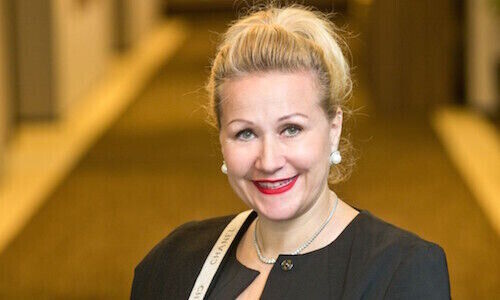Dominique Boer: «Philanthropists Want to be Co-Creators»
Passive funding alone will no longer suffice for this new era of philanthropists, SymAsia Foundation CEO Dominique Boer told finews.asia, with more and more looking to help form solutions directly.
For philanthropists nowadays, it is no longer sufficient to simply deploy capital and watch from the sidelines, with an increasing number preferring instead to take a more active approach.
«[W]e see donors starting to prefer more catalytic and strategic philanthropy, seeking innovative ways to solve age-old problems,» said Dominique Boer, CEO of SymAsia Foundation – Credit Suisse's philanthropy platform – as well as market group head for Singapore at the Swiss bank’s wealth unit.
«They want to be co-creators of social solutions instead of just being passive funders, and they are keen to partner with other philanthropists.»
No Compartmentalisation
Compared to the past, philanthropists nowadays are not satisfied with compartmentalizing the deployment of capital for philanthropy, instead choosing to apply the approach across assets, including their businesses. As a result, there has been increased demand for impact and sustainability tools, such as venture philanthropy, impact investing, social enterprises, social impact bonds, blended finance, and the overall concept of ESG.
«Donors are redefining the practice of philanthropy by bringing business principles into philanthropy and bringing purpose into business,» Boer said.
Real Impact
In the region, SymAsia's Asia-focused impact investment fund series – first launched in 2015 – has reached 23 million low-income individuals across Southeast Asia and China via investments in fast-growing small and medium-sized businesses from various sectors.
In agriculture, smallholder farmers gained access to finance, inputs, and technology and were introduced to higher-value crops. In healthcare, 3.5 million low-income individuals have gained access to improved and affordable healthcare goods and services. And in education, youths from low-income households have obtained content access that resulted in national-level learning outcomes.
«Company-specific impact metrics are established by referencing industry-standard impact indicators like IRIS+ as well as investee company-specific indicators,» Boer underlined. «To ensure advancement of the impact thesis, these are not only measured prior to investing but also tracked regularly during the life of the investment.»
Sustainability Hurdles
In 2020 during the midst of the pandemic, SymAsia observed the highest number of collaborative organizations established in a single year as philanthropy increasingly becomes a «must-have» rather than a «nice-to-have» amongst ultra-high-net-worth families. But despite the advances, there are still challenges ahead for the space.
«The philanthropy world is still figuring out how best to use philanthropic assets for sustainable investing and aligning on definitions of impact investing,» Boer noted. «Two big areas of development are governance and impact evaluation.»
Tax Deduction
SymAsia was set up by Credit Suisse in 2010 to enable and support the bank's APAC clients to engage in philanthropy. It runs the SymAsia Singapore Fund, a registered charity with an Institution of a Public Character (IPC) status in Singapore which allows taxpayers in the city-state to enjoy a 250 percent tax deduction on qualifying donations.
SymAsia is particularly positioned for philanthropists who wish do not wish to take on the administrative, operational and governance burden of operating their own foundation.



























